Pre-Calculus Enrichment Enabled by Innovative Platform Features
Concept Review LessonsBrush up on Pre-Calculus math concepts with our tutorials and animated video lessons that cover everything from types of numbers to trigonometric functions. Piqosity dynamically recommends lessons based off of a student’s demonstrated weaknesses. |
 |
Piqosity Virtual Tutor
Students input their goal score and timeline, from which PVT provides a personalized, step-by-step plan of action. |
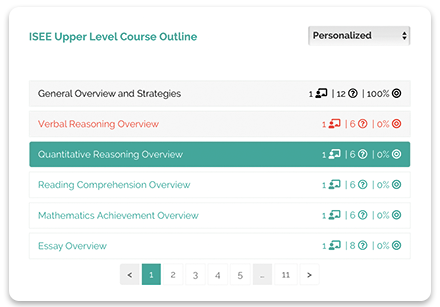 |
Pre-Calculus Unit TestsPiqosity’s Pre-Calculus math course is divided into four primary units. Paid plans include a full-length test for each unit. All plans, including the free Community plan, also feature a diagnostic test for students to quickly understand their strengths and weaknesses. The diagnostic test is especially helpful for students using Pre-Calculus in conjunction with our ACT or SAT prep courses or towards the end of the year for remediation. |
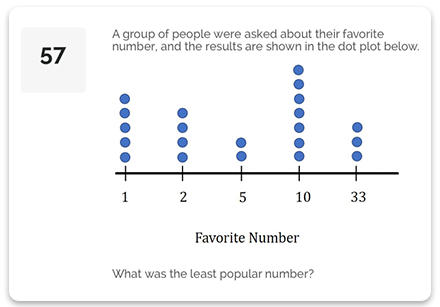 |
Strengths & Weaknesses AnalysisPiqosity continuously updates your estimated test day score after every full-length test and practice set. It also analyzes all practice to provide details on strengths and weaknesses, improvements, and pacing. |
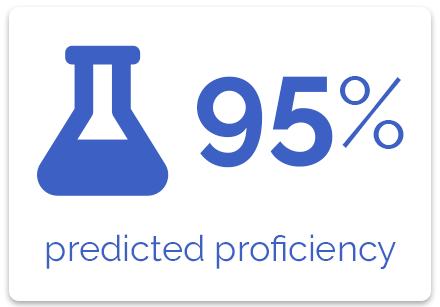 |
Pre-Calculus Answer ExplanationsEvery premium question contains at least 1 explanation. Students may request additional explanations from all educators in our network. |
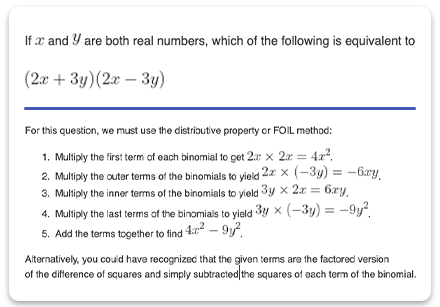 |
Printable Practice Test PDFsBoth full-length Pre-Calculus unit tests and personalized practice sets can be downloaded as a PDF for printing. |
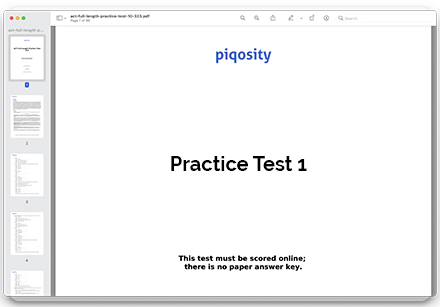 |
Customizable TimerWant to time your Pre-Calculus practice? The default time is 90 seconds per question; however, the countdown timer can be set to time-and-a-half, and double time according to your preferences. |
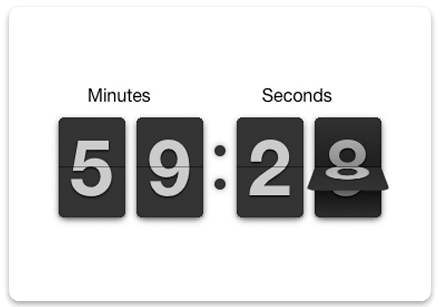 |
Innovative Learning ToolsPiqosity’s student interface includes helpful tools like answer choice strike-throughs, question flagging, and a whiteboard on which to do scratch work. |
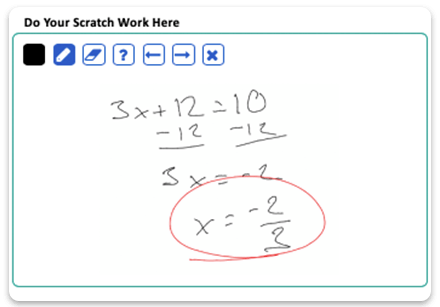 |
Continual GrowthOur global team of software engineers, curriculum editors, and educators is continuously deploying features and updating materials. We generally make behind-the-scenes code updates every two weeks. |
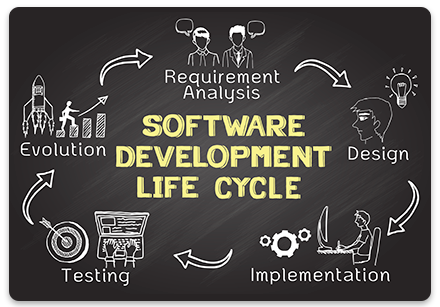 |
Piqosity’s Affordable Pricing for Pre-Calculus Math Enrichment
Pre-Calculus Course Plans
| Community | On-Track | Honors | |
| Learning Materials | |||
| Mini Diagnostic Test | ✓ | ✓ | ✓ |
| Full-Length Unit Tests | 0 | 4 | 4 |
| Personalized DSAT Practice Questions | 150 | 300 | 1,300+ |
| Concept Review Lessons | ✓ | ✓ | ✓ |
| Matching ELA Course | - | - | ✓ |
| Key Platform Tools | |||
| Piqosity Virtual Tutor Personalization | ✓ | ✓ | ✓ |
| Dynamic Question Difficulty | ✓ | ✓ | ✓ |
| Strengths & Weaknesses Analysis | ✓ | ✓ | ✓ |
| Gamified & Adaptive Practice | ✓ | ✓ | ✓ |
| 3rd Party Tutor Compatibility | ✓ | ✓ | ✓ |
| One-Time Fee | free | $49 | $89 |
The chart below is for users who sign up directly with Piqosity beginning December 9, 2024.
- No credit card is required to register for the free Community Plan.
- All plans include unlimited access for 365 days.
- Lower-tier plans can be upgraded after initial purchase; however, coupons are not applicable to upgrades, and the validity period will not be extended beyond the original purchase date.
Group Pricing for Educators
Discounted, per-student pricing is available to any educator including schools, tutoring companies, teachers, or tutors. Each student license is charged individually depending on the number of active licenses in the educator’s account.
Only one type of plan is available for group discounts–the Group Plan. The Group Plan includes access to all material including practice tests but no additional services or bundled courses.
No application is required; to qualify for group pricing, simply register as an educator or organization, and the discounts will be automatically applied.
The Piqosity Advantage
How to Use Piqosity’s Pre-Calculus Course
Our proven skills building methodology for the last 18+ years.

Pre-Calculus Curriculum
Aligned to Common Core and Texas Essential Knowledge & Skills
The first unit of the Pre-Calculus course focuses on functions:
- Combining Functions
- Function Transformations
- Function Domain and Range
- Polynomial and Inverse Functions
- Exponential Functions
- Law of Logarithms
- Logarithmic Functions
The second unit of the Pre-Calculus course focuses on Trigonometry:
- Trigonometric Function
- Trigonometric Functions of Angles
- Trigonometric Graphs
- The Law of Sines and Law of Cosines
- Pythagorean Identities
- Even-Odd Identities
- Quotient and Reciprocal Identities
- Cofunction Identities
- Double-Angle, Half-Angle, and Product-Sum Formulas
- Addition and Subtraction Formulas
The third unit of the Pre-Calculus course focuses on coordinates and vectors:
- Polar Coordinates and Graphs
- Complex Numbers
- De Moivre’s Theorem
- Plane Curves and Parametric Equations
- Vectors in Two Dimensions
- The Dot Product
- The Cross Product
- Vectors in Three Dimensions
- Equations of Lines and Planes in 3D
The fourth unit of the Pre-Calculus course focuses on conics and limits:
- Systems of Linear Equations in Multiple Variables
- Parabolas, Ellipses, Hyperbolas, and Circles
- Sequence and Summation Notation
- Arithmetic and Geometric Sequences
- The Binomial Theorem
- Rational Functions
- Finding Limits Numerically, Graphically, and Algebraically
- Limits at Infinity
- Average Rate of Change of a Function
Complementary Courses
English 11
Bundle our 11th grade English course for 100+ more reading passages to practice with.
ACT
Bundle this Algebra 2 math course with test prep for the ACT for unrivaled amounts of practice.
SAT
Bundle this Algebra 2 math course with test prep for the SAT for unrivaled amounts of practice.
Frequently Asked Questions
Yes! Piqosity’s courses are designed to meet your student where they are, and they can be used for both enrichment and remediation. Your child can use Piqosity’s lessons and practice materials to review and reinforce the concepts they are struggling with in class. If they aren’t sure where to start, they can take a diagnostic test to help them understand where their weaknesses lie, or they can use the Piqosity Virtual Tutor to progress through the Course Outline from start to finish.
Our content is partly written in-house and partly by third party publishers including tutors and teachers. Our in-house team has more than 15 years of experience helping thousands of students achieve their potential at our home base in Houston and around the world.
Our content is aligned to both Common Core and Texas Essential Knowledge and Skills (TEKS). We and our partners also write content in accordance with our experience and the specifications set forth by the test makers (i.e. ACT, College Board, and ERB).
Piqosity works hard to make our platform as straightforward and easy-to-navigate as possible. If you are experiencing issues, please visit our support center for immediate answers to most questions, including how-to guides for students and educators, as well as a list of known technical issues. You can also contact us via support ticket any time or call us at +1 713-234-6098 within business hours.
Piqosity means to pique curiosity. We are a Houston-based education technology startup on a mission to rethink education. One product launch at a time, we are on a journey to democratize education publishing, personalize student learning, and empower future generations to tackle the greatest challenges. Our team has more than 18 years of tutoring and test prep experience since we first helped our first student out of a Rice University dorm room in 2003. Click here to learn more about our company.
Every practice set on Piqosity, including adaptive questions and full-length mock tests, can be downloaded as a PDF file for easy printing.
After a year of Algebra, you should be familiar with:
- Linear equations and inequalities, including interpreting, solving, and graphing them
- Systems of linear equations and inequalities
- Function notation, along with finding the domain and range of various functions
- Exponents, radicals, arithmetic and geometric sequences, and polynomials
- Quadratics, including solving and graphing quadratic functions
By the end of the year, your 5th grader should be able to:
- Work comfortably with (add, subtract, multiply, and divide) fractions.
- Work comfortably with (add, subtract, multiply, and divide) decimals to and beyond the hundredth decimal place.
- Understand and apply the correct order of operations.
- Graph points on a coordinate plane.
- Interpret the data presented in various types of tables and graphs.
- Solve very basic algebraic problems.
- Identify and correctly measure the perimeter, area, and volume of various shapes.
Piqosity’s online classes are suitable for many different types of self-directed learners. Whether you’re a student looking for additional \ enrichment and test prep outside of the classes or are simply looking for a little remediation, Piqosity’s courses provide you with the tools and resources you need to meet your goals.
However, online learning is not for everyone. Students who struggle to focus on the computer may find that classroom learning is better suited to their needs.
All courses are available for a full 365 days after the date of purchase.
Yes! We are actively looking for educators and publishers to contribute to our platform. Please contact us for more information.
As always, it’s free to sign up with Piqosity’s Community Plan, which provides you with limited access to premium content. The paid plan unlocks all of Piqosity’s key innovative platform features, including:
- Instructional lessons with multiple variations including videos
- Adaptive practice including the option for gamification
- Student analytics and strengths and weakness diagnostics
- Answer explanations from both the original author and third-party educators
- Printable PDF practice tests and question sets
- Timers with settings for time and a half and double time
- Online test taking tools like whiteboard, question scratch throughs, and flagging
Register now to get started!
Our content is aligned to both Common Core and Texas Essential Knowledge and Skills (TEKS). Where applicable, we and our partners write content in accordance with our experience and the specifications set forth by the test makers (i.e. ACT, College Board, and ERB).
The dashboard for each course puts your student’s progress front and center, with easy-to-read “donuts” displaying their current score (out of 100) across the course as well as within each unit or topic that the course covers. For a more granular look at your student’s accuracy, refer to the Course Outline on the dashboard or visit the Lessons page; these tools display your student’s accuracy when it comes to individual concepts. If your student completed one of Piqosity’s diagnostic assessments upon getting started with the course, you can also compare their diagnostic scores with their current performance to get a sense of how they are progressing.
Even if it has been a while since you have reviewed Algebra, you can help your child by encouraging them to complete practice on a regular basis – including, but not limited to, the practice they are assigned by an educator. Repetition is important not only in overcoming weaknesses with algebraic concepts, but also in strengthening skills and building confidence across the board. Work with your child to review their homework, quiz, and test grades to help determine where they are struggling, and focus on those areas first. You can also speak with your child’s educator to get a better sense of where their strengths and weaknesses lie.
If you desire more structured math practice, consider using Piqosity’s Algebra 1 course, which makes it easy to diagnose weaknesses and practice concepts.
Our preparation material for standardized tests like the ISEE, ACT, and SAT go through a rigorous research, writing, and editing process:
- We analyze the test specifications released from the publishers like College Board and ACT.
- We analyze the previously released official practice tests.
- We write our practice tests based off this analysis while citing official practice test questions.
- We edit each question and test for facsimile to the official tests, difficulty, and completeness.
- We peer norm each question with actual students.
- And because 10,000 sets of eyes are still better than our 10 sets, we continuously make improvements from your feedback.
Our brilliant writers scored in the top 1% on these tests, and our Houston-based team of editor/educators has more than 20 years of experience in K12 education. We won’t let you down!
If your child is struggling with math, one of the best things you can do is to identify their problem areas and spend a little extra time with them each day practicing these concepts. Do your best to apply concepts to real-world, daily issues and to keep math practice positive and fun. If you yourself struggle with math, make sure to read our article on overcoming math anxiety; it is all too easy to pass down your negative feelings towards math.
If you desire more structured math practice, consider using Piqosity’s 5th grade math course.
Yes, Piqosity offers online private tutoring for ISEE, ACT, SAT, PSAT, plus math and English. We provide tutoring directly and in partnership with local tutors and companies. Click here to learn more.
Currently, all of our Math and ELA courses are estimated to take around 40 hours to complete. School is in session for roughly 35 weeks out of the year; assuming a student works roughly 1 hour per week, your Piqosity math course will take the average student a full academic year to complete. Students using Piqosity to remediate or prepare for a standardized test such as the ISEE Lower Level, will likely have to compress this timeline.
Piqosity does not provide tutorial services. However, we do partner with independent, third-party educators across the world. Some of our course packages include a consultation or tutorial session with these tutors and teachers.
Piqosity is not an accredited institution and does not offer course credit. We do not currently offer certificates of completion at this time, but are working towards doing so in the near future.
Yes! We built Piqosity not only to be user friendly for parents and students at home but also for the advanced needs of tutors and teachers. Key features for educators include:
- Student management including the ability to see everything the student sees
- Automatic scoring and analysis of all student work
- Assignments with due dates
- Custom Branding (tutoring companies and schools)
The biggest features for educators are still yet to come. Beginning this fall we will open up our platform to enable any qualified educator to upload their own instructional content to Piqosity. This means that educators will be able to create their own lessons and questions. They will be able to share this content with all users or just with their own students.We are actively looking for educators and publishers to contribute to our platform. Please contact us for more information.
Yes! All of our courses include a free membership level. For test prep courses like ACT, SAT, and ISEE, this free plan even includes access to two, full-length practice tests. No credit card is required to register. If you decide that you want access to more premium content, simply upgrade your plan. Upgraded course plans are single-pay, non-recurring, and provide access for 365-days from the date of purchase.
Yes! Every practice set on Piqosity, including adaptive questions and full-length tests, can be downloaded as a PDF file for easy printing.
If you upgrade from the free On-Track plan, your credit card will only be charged the one time without automatic, recurring charges. All paid plans are currently valid for 365 days from the date of activation. No credit card is required to create a free account at Piqosity.
Students usually take Algebra 1 in 8th or 9th grade, which means that our course is generally ideal for students between 13 and 15 years of age. However, Piqosity’s courses can be used in a variety of ways. If you have a student in Pre-Algebra who is looking for a challenge, they could take our course for enrichment purposes. Meanwhile, an older student who is taking (or about to take) Geometry or Algebra 2 could use our Algebra 1 course for remediation, or to brush up on previously learned concepts.
Children entering the 5th grade are typically around 10 or 11 years old, and our course is ideal for students at that age. However, Piqosity’s courses can be used in a variety of ways. If you have a younger child looking for a challenge, an 8 or 9-year-old could take our course for enrichment purposes. Meanwhile, an older 11-year old or a 12-year-old who needs to review previously learned concepts could use our math course for remediation purposes.
You can learn more about how to effectively use our math courses for a variety of scenarios in our helpful user guide.



 Patrick the Piqosity Virtual Tutor (PVT) personalizes the course outline and automatically guides students through lessons, practice, and review.
Patrick the Piqosity Virtual Tutor (PVT) personalizes the course outline and automatically guides students through lessons, practice, and review.









